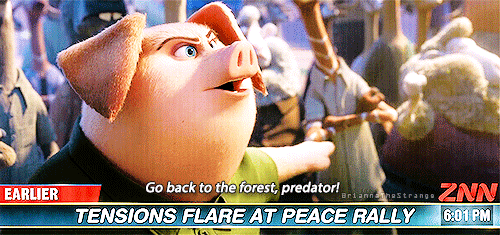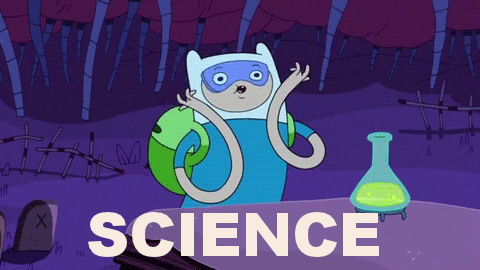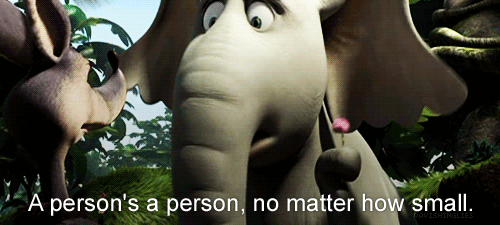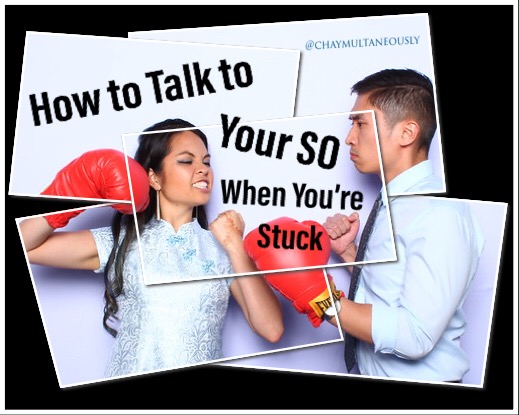How Your Brain Misreads Your Heart and Becomes Racist (and How to Counter It)
This might sound weird but I absolutely Love learning everything there is to know about racism.
Recently I came across some incredible research articles and remembered some old well-known experiments/demonstrations of how racism is perpetuated by the structures around us and the brains and hearts inside of us.. I was actually pounding the table with excitement while I was reading - this stuff is so interesting to me! I'll probably have to do multiple racism posts in order to cover all the things. I can't wait!
Anyways. I have to do a little bit of background info before I go into the article I found.
Your brain likes to operate using schemas.
What is that?
A schema is "a set of preconceived ideas that your brain uses to perceive and interpret new information." Basically, it's autocorrect, but for ideas. For example, you see a door open for the first time in your whole life. You see it open, you see it close. People walk in, people walk out. Your parental figure says "door" a bunch of times into your face while you stare at it.
Then you look at another thing that you don't know: it has a handle, it has a hinge. It's a different color, but it kind of moves the same. Then people walk in and out of it too. Wow, another door. Pretty quickly, you can recognize a door without even noticing what you're doing.
Then you look at another thing that you don't know: it has a handle, it has a hinge. It's a different color, but it kind of moves the same. Then people walk in and out of it too. Wow, another door. Pretty quickly, you can recognize a door without even noticing what you're doing.
 |
| which is also why people do this all the time |
Your brain loooooooooooooooooooves schemas. Like, a lot. Hence all the o's. Your brain takes up 20-25% of your blood flow while taking up only 2% of your whole body weight. That's a TON of energy and resources for one "tiny" part - so your brain is trying to cut corners as much as possible.
This brings us to racism.
As you can probably tell from my example with the doors, you can easily map that on to people and the various shades of skin and facial/body features that we associate with certain races. If we've grown up around people who look a certain way and they act one way, and then we see a new person who looks different from us and people treat them a certain way or act differently around them, well it's easy to assume that this person is not safe and possibly dangerous.
So we know what our brain is doing when we see an unfamiliar face of someone who is a different race than ours (assuming they're gonna be like most of the ones we've seen before); but what about our heart?
So we know what our brain is doing when we see an unfamiliar face of someone who is a different race than ours (assuming they're gonna be like most of the ones we've seen before); but what about our heart?
The article that grabbed me by the shoulders and shook me was written by Manos Tsakiris, a psychology professor at the Royal Holloway University of London: "The brain-heart dialogue shows how racism high-jacks perception" - and the whole point of "chaymultaneously" is that the heart and the brain are working together, sometimes in harmony, sometimes not! I was in love immediately.
I've read many different experiments and research articles on racism and its effects on humans, young and old, but never something quite like this. Inspired by the recent publicity for police shootings disproportionally directed toward black men especially, this professor had the novel idea of testing this phenomenon in conjunction with what the heart is doing.
As most people know, much of the defense for officers who have used deadly force on a citizen centers on "I thought he was holding a gun" when they were holding very innocuous items.. or nothing. Tsakiris put the participants through a "first person shooter" test, showing them images of black and white men, holding either a gun or a phone, and the participant must decide whether to shoot or not. The genius part? He timed the image of the man with the spike of the heartbeat OR the lull - and then he gathered if that made any difference.
 |
| spikes and lulz are the technical terms |
He found that false positives were more likely by 10% than the average if the image of a black man holding a phone was shown On the heartbeat. When he asked the participants in a second part of the experiment to identify an object as a "weapon" or a "tool" after being shown a picture of a black man or a white man, the wrong answers (when shown a black man and then an object) increased to 20%. 20. Per.CENT.
In contrast, (compared to the average of false positives for black or white faces) data for images shown in between heartbeats showed no difference !!!
Oh man. I lost my mind right there.
Your heart has just as much to do with your reaction as your brain. Imagine, you're a police officer, you've received a report of a dangerous individual - you pull out your gun, your heart is Pounding. That survival mechanism? That lizard brain? It's on full blast trying to overtake your logic brain.
So what do we do? Are we hopeless blobs of flesh, succumbing to the timing of our heartbeats and the next time we see a person of questionable coloring?
I think not.
Mindfulness
I've talked about mindfulness many times in my short time of writing this blog, but it obviously helps with so many different things. It's a whole body experience. It controls your breathing and your heart. You're less likely to make snap judgments; you're more likely to feel feelings and understand them rather than launch off of them. Google "mindfulness exercises" and you'll get various things from apps, to YouTube videos, to articles and books, all offering their help for how to "do" mindfulness. I found this one here to get you started.
Familiarity
I'll talk more about this in the next post. The more we see something, the more we are comfortable around it. Sometimes reducing racism's iron grip starts with something as easy as that. That's the whole premise of exposure therapy: we see a scary thing, we practice being in the room with it every day. We learn stuff about it. Eventually it doesn't scare us anymore, cuz we didn't die. The more we associate a person with hmm, I don't know, being a Person, the less likely we will see them as a threat.
Air It Out
This is a tough one, so I'm not expecting everyone to jump on this at once. But this really goes back to unfinished business. The more you hold in something that's bothering you, the more it will come out in unpleasant ways. Racism affects all of us negatively, whether you believe it or not, whether you are privileged or not. If there is something you don't understand or something that happens and you feel hurt by it.. and you're not quite sure why, but you're sort of sure it has to do with race, talking to someone you trust about it can be straight up magical in how you grow from that experience or misunderstanding. Even if you get it sort of wrong, and you feel like an idiot (or worse, a racist), you'll be that much closer to not being one.
I'm so ridiculously excited for the next posts. See you next time!















Comments
Post a Comment